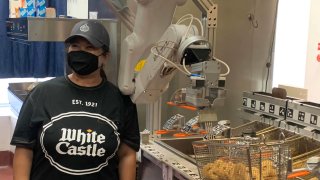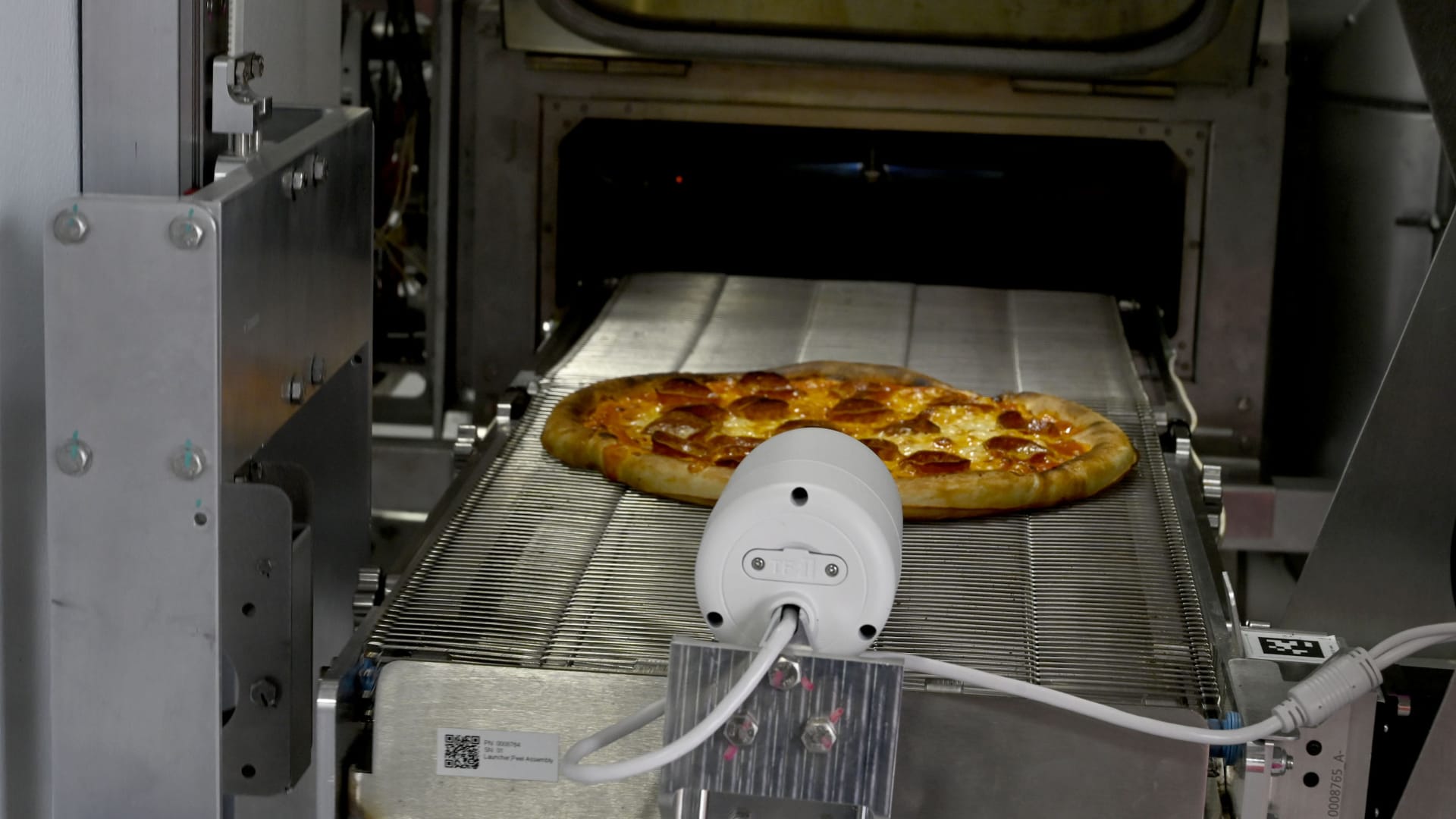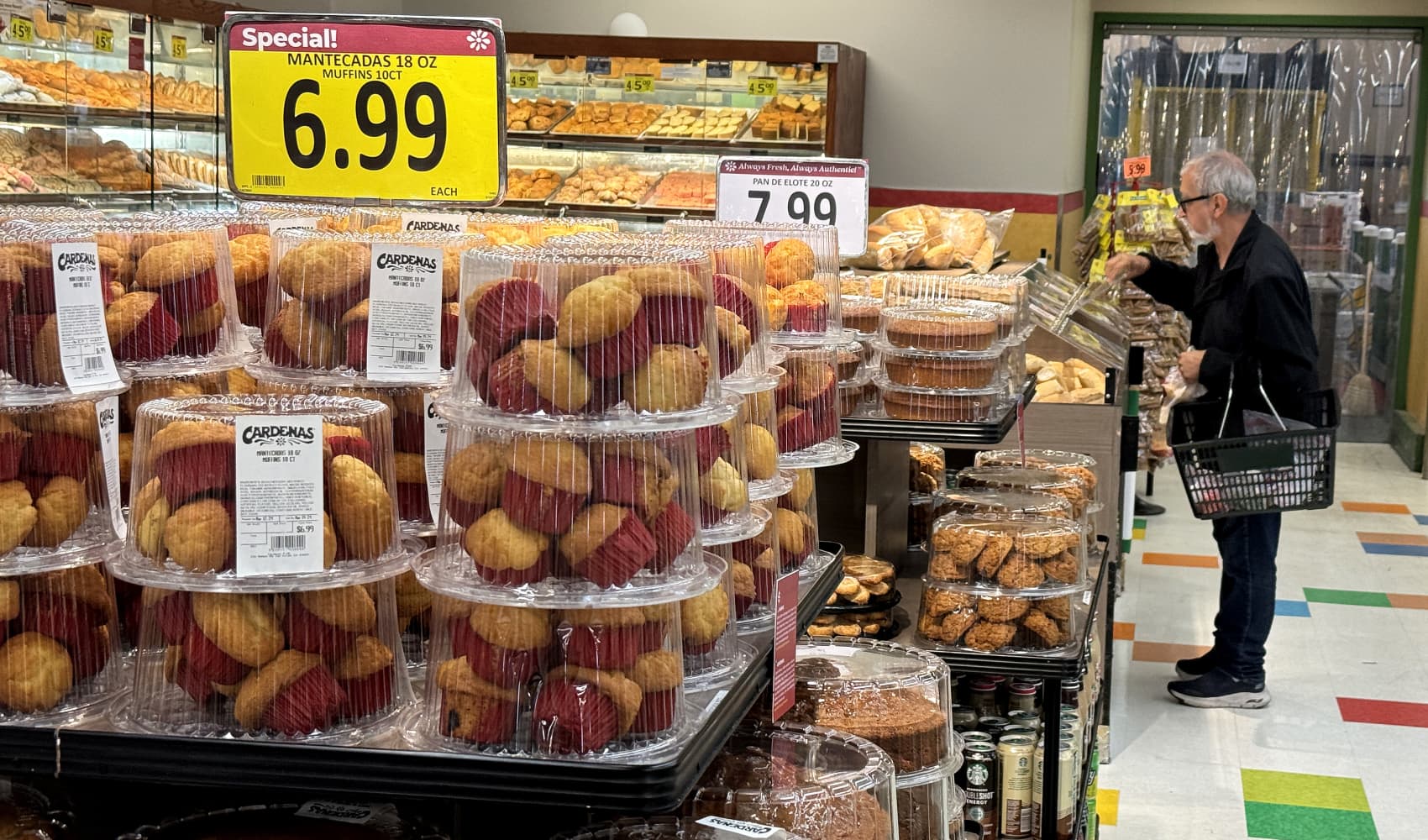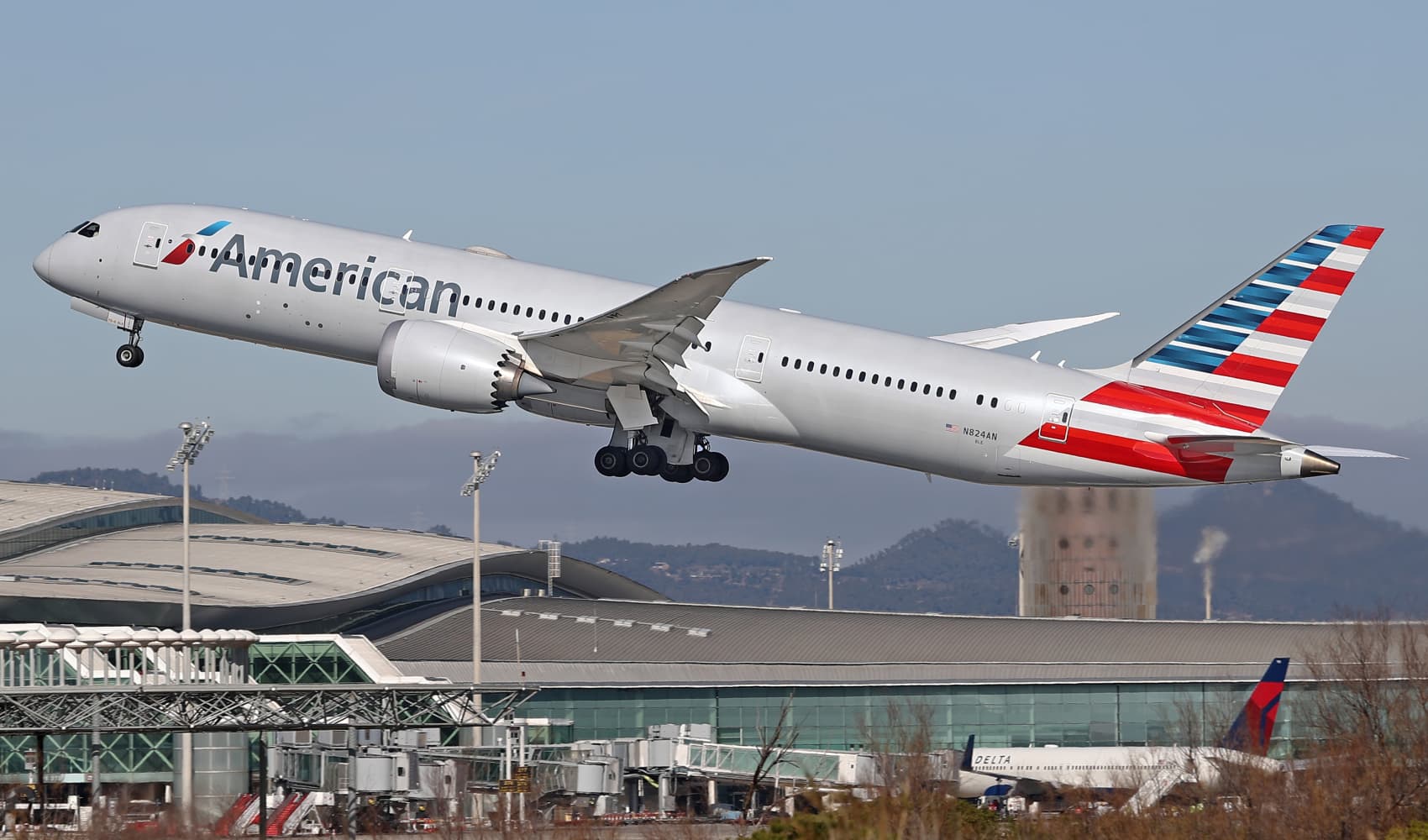
- Robots have been making their way into kitchens nationwide as the technology becomes cheaper and finding workers becomes harder.
- Chipotle, Wing Zone, and White Castle are just some of the restaurant chains investing in robotics.
- Stellar Pizza, founded by former SpaceX engineers, built a touchless machine that fits in the back of a truck that can make pizzas in under a minute.
Before the end of this year, a brand-new pizza purveyor plans to hit the Los Angeles area. But this isn't just another pizza place.
This company plans to serve pizza from trucks and the pies themselves are put together not by humans but by robotics developed by former engineers from SpaceX. The machine can produce a pizza every 45 seconds.
Benson Tsai, who founded Stellar Pizza in 2019 along with fellow SpaceX engineers Brian Langone and James Wahawisan, got about two dozen former SpaceX employees to build a touchless pizza-making machine that fits in the back of a truck.
Get San Diego local news, weather forecasts, sports and lifestyle stories to your inbox. Sign up for NBC San Diego newsletters.
Stellar isn't the first company to conceive of robot-made pizza, and the early track record for the business model includes one notable failure. Softbank-backed Zume Pizza, which was once valued at $4 billion, shuttered its robot pizza delivery business in January 2020 and has since pivoted to making compostable packaging.
Entrepreneurs are not giving up on the robot pizza concept. Chef Anthony Carron's 800 Degrees Go of Cleveland, which specializes in wood-fired cooking, and robot-based artisanal pizza maker Piestro of Santa Monica, Calif., have a venture to use robotic pizza machines at bricks-and-mortar and ghost kitchen locations in what they say will be a lower cost restaurant model. They plan to have 3,600 machines deployed in the next five years.
Money Report
The trend has moved far beyond pizza as well, with Miso Robotics, the maker of the Flippy 2 — a robot arm that works the fryer at fast-food restaurants — already deployed at Chipotle, White Castle and Wing Zone. It's being introduced to the Middle East market as well through a partnership with Americana, a franchisor and franchisee with over 2,000 restaurants in the region including KFC, Hardees and Pizza Hut.
Robot chefs becoming "commonplace"
Jake Brewer, Miso Robotics' chief strategy officer, said such machinery will soon be commonplace in restaurants.
"I believe that if anyone wanted to, they could go see a robot working in a restaurant in 2024, 2025," Brewer said. "You can go see robots cooking right now and that's only going to grow week over week."
Chipotle Mexican Grill worked with Miso Robotics to customize the "Chippy" robot, which cooks and seasons Chipotle's chips with salt and fresh lime juice. The robot is trained to recreate the exact recipe using artificial intelligence.
As of March, Chipotle was testing the robot at its innovation hub in Irvine, California, the Chipotle Cultivate Center. The company plans to use it in a restaurant in Southern California later this year and will determine if it will roll it out nationally.
"Right now, the general sense is that there's going to be a lot more robots," said Dina Zemke, assistant professor at Ball State University. She said in the past adding robotics to the staff was prohibitively expensive, but now there are more companies making kitchen-ready robots, which is helping to drive prices down.

Fast-food preparation is made for robotics. "The recipes are highly standardized. And really, it's mostly heating an assembly," Zemke said. "No one's creating just the right secret sauce in the back of the house; all of that is provided through a commissary system."
Wing Zone, a 61-unit chain, is perhaps the most robotics-friendly fast-food restaurant right now. In May, the chain expanded its relationship with Miso Robotics. Wing Zone has been testing Flippy 2 in the last step of the wing-frying process and is using its Wing Zone Labs arm to develop fully automated Wing Zones.
Lack of restaurant staff aids robotics push
Part of the adoption is driven by an inability to find workers. The National Restaurant Association reported last year that 4 in 5 operators are understaffed, and overall employment in the leisure and hospitality category that includes restaurant staffing has been the most challenged since the pandemic, according to data from the Bureau of Labor Statistics.
A recent report from Lightspeed found that 50% of restaurant owners plan to install automation technology within the next two or three years.
For Chipotle, it's not about replacing workers but allowing them to complete more impactful tasks than repetitive things like making chips.
"It started with, 'How do we remove some of the dreariness of a worker standing at the fryer and frying chip basket after chip basket?'" Chipotle chief technology officer Curt Garner told CNBC earlier this summer. "It allows our crew to spend more time doing culinary tests, serving guests," he said.
Clemson University professor Richard Pak, an expert on the use of autonomous technology, said automation works better for food that is cheap. "When you're paying for it, when you're paying more, you're paying for experience and artistry and experience," he said. "And so I don't know if these kinds of robots would be acceptable in higher-end restaurants. People would wonder what they're paying for."
Yet there is some trepidation in the broader restaurant market as well. A recent poll by Big Red Rooster found that a third of diners don't want to see robots preparing their food.
For Stellar founder Tsai, the robotics are a means to an end: making sure that the company can deliver an affordable pizza pie that customers like. While pricing has not been finalized, he said the target price is "definitely sub-$10." A 12-inch pie of cheese pizza will run about $7, Tsai said.
The plan for Stellar, which has raised $9 million in funding, includes national expansion.
"The pizza market is a big, big market and as we sort of establish a foothold here in Los Angeles we will start to grow and expand outwards towards Las Vegas, towards Phoenix, towards Texas," Tsai said.






